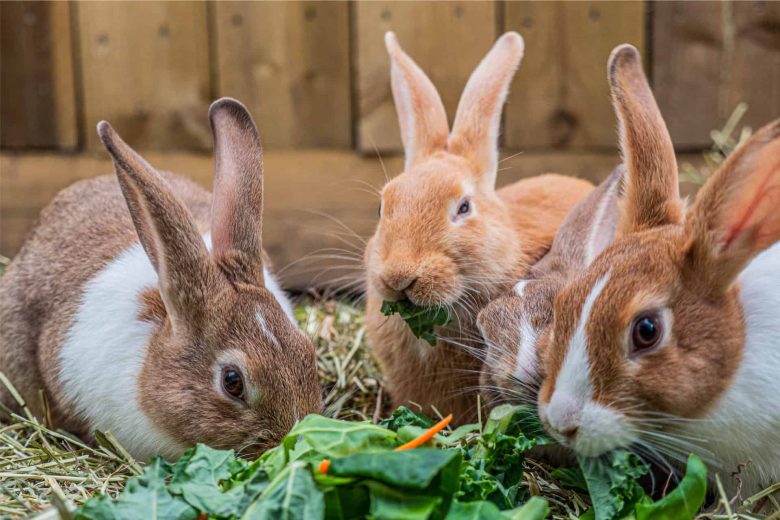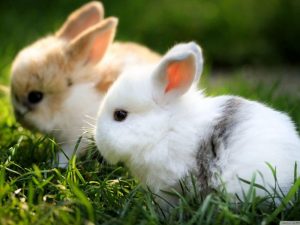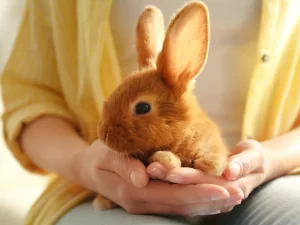Rabbits make great pets, but keeping them healthy requires more than just giving them a nice home. It is important to feed your pets properly so that they stay healthy and happy. In this guide, we’ll discuss the key components of rabbit nutrition so you can find the right combination for your diet.
1. High Fiber Diet
Rabbits are natural herbivores and their digestive system is designed to process fiber-rich foods. Hay is an important part of their diet because it provides them with fiber, which helps their intestines and prevents them from developing common health problems such as gastrointestinal stasis. You should give them a variety of hays, such as timothy, orchard grass, and alfalfa, so they can get the nutrients they need at different times in their lives.
2. Plant Food
Fresh vegetables are a great way to provide your rabbit with extra vitamins and minerals. You should choose green leafy vegetables such as lettuce, kale, and spinach. But be sure to add new vegetables slowly so they don’t upset your stomach, and be sure to wash them thoroughly to remove pesticides.
3. Not Many Particles
Although commercial pellets are easy to use, they should not be your only source of protein. Pellets with a high fiber content and few other ingredients are best. Pay close attention to portion sizes and adjust as necessary based on your rabbit’s age, size, and activity level. Remember that eating too many pellets can make you gain weight and cause other health problems.
4. Drinking Water
Rabbits need to drink plenty of water to stay healthy. Make sure that clean, fresh water is always available. If your rabbit lives indoors, you may want to use a dropper bottle to prevent food spills.
5. Smart Snacks
It is good to get to know your rabbit better through treats, but you should not give him too much. Choose healthy snacks, such as small pieces of fruit, instead of unhealthy snacks, such as sugary snacks and processed snacks, which can make you fat and cause dental problems.
6. Visit Your Vet Regularly
Talking to a vet who knows a lot about rabbits is important to keeping your pet healthy. Regular inspections can help identify problems early so they can be resolved quickly. Your vet can also give you special nutritional advice based on your rabbit’s needs.
7. The Importance of Hay
Hay is an important part of a rabbit’s diet and cannot be emphasized enough. Not only does it aid digestion and help with problems like hairballs and grease, but it also promotes dental health by allowing you to chew naturally. Make sure your rabbit always has access to fresh, high-quality hay. This not only provides them with important nutrients but also keeps them hungry and mentally active.
8. Adjust the Diet to Different Stages of Life
As a rabbit ages, what a rabbit should eat changes. Kittens are small rabbits and need food rich in protein and calcium to help them grow quickly. Gradually transition to a healthier diet for adults as they get older. In older rabbits, changes may need to be made to account for changes in their metabolism and possible dental problems. For long-term health, people need to regularly review their diets and make adjustments based on their stage of life.
9. Understand Dietary Restrictions
Some rabbits may need extra care because they cannot eat certain foods or because they have health problems that require special care. For example, rabbits that gain weight easily should watch their portion sizes and exercise more, while rabbits with dental problems may eat softer foods. Always pay attention to your rabbit’s needs and consult your veterinarian if you notice any changes in your rabbit’s behavior, hunger, or weight.
10. What do Supplements do?
In some cases, you may need to give your rabbit a supplement to ensure he gets all the nutrients he needs. For example, vitamin pills can be useful if your rabbit’s diet is not varied enough. But before giving your pet vitamins, check with your vet first, as too many can cause health problems and imbalances.
11. Promoting an Active Lifestyle
Rabbits need a balanced diet and plenty of exercise to be happy. Make sure there is plenty of room for your rabbit to jump, run and play. These things are good for their mental health, but also for their physical health. Their natural senses are stimulated by interactive toys and opportunities to explore. This keeps them from getting bored and keeps them happy and healthy.
Conclusion
Providing your rabbit with a healthy diet requires carefully mixing hay, fresh vegetables, and pellets, as well as understanding their unique needs. Their overall health will also improve if they visit the vet regularly, understand what stage of life they are in, and stay active. By following these basic rabbit diet principles, you will not only be caring for your pet; but You will also become a happy and healthy friend.
FAQs
1. What do rabbits mainly eat?
Hay is the main food that rabbits eat. High-fiber hay, such as timothy, orchard grass, or alfalfa, is important for intestinal health and preventing problems such as gastrointestinal stasis.
2. Do rabbits need industrial pellets in their diet?
Although seeds can be part of a rabbit’s diet, they should not be their primary food source. Choose pellets that are high in fiber and low in other ingredients, and pay attention to the quantities to avoid obesity.
3. What foods can rabbits eat?
Rabbits should eat fresh vegetables, such as lettuce, kale, and parsley. Fruits can be eaten as a snack, but due to their high sugar content, they should not be eaten regularly.
4. How much water do rabbits need?
Rabbits should always have access to clean, fresh water. Make sure they always have water on hand and consider using a dropper bottle to prevent water spills.
5. What role does hay play in a rabbit’s dental health?
Hay is good for your teeth because you can chew it naturally, which keeps your teeth healthy. It also helps with the wear and tear of teeth, which grow larger as we age.
6. How often should I take my rabbit to the vet?
It is very important to consult your doctor regularly. In general, you should have an annual checkup to monitor your rabbit’s health and discuss any special health or nutritional concerns.


